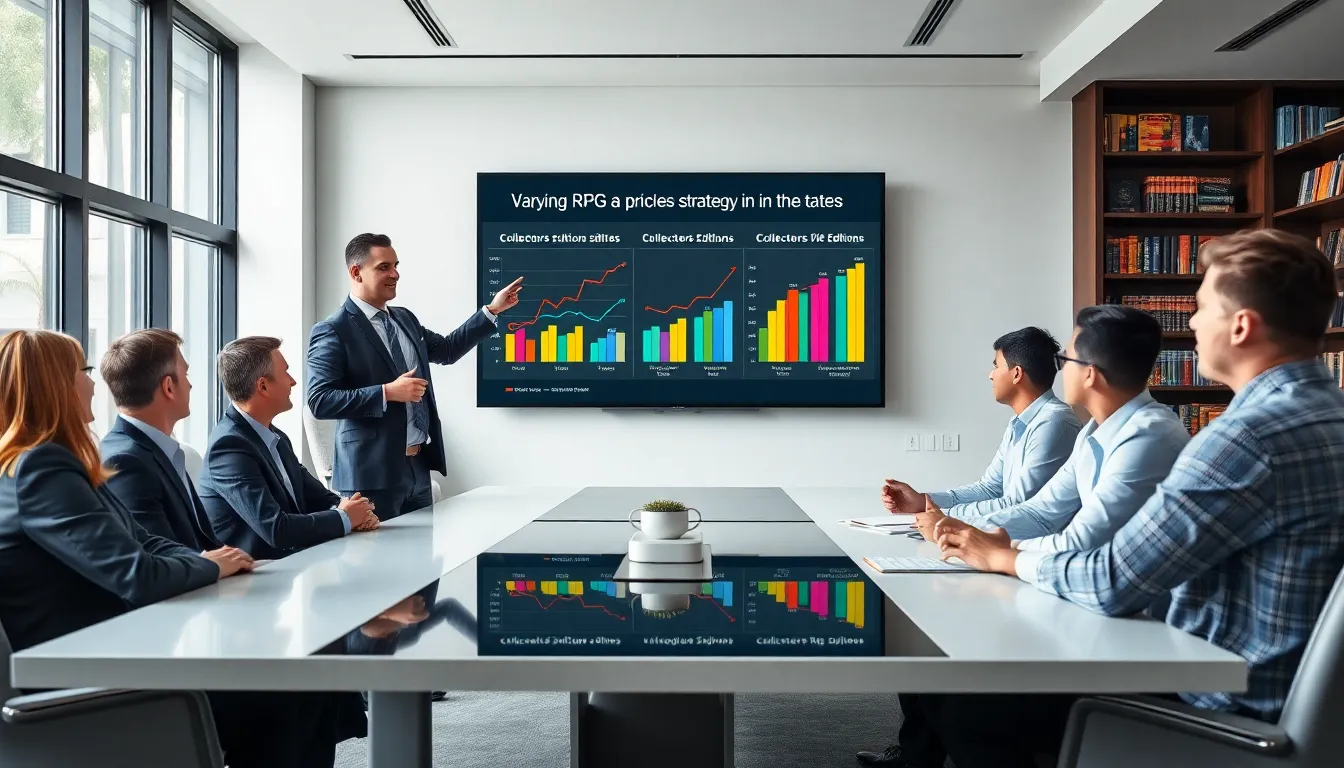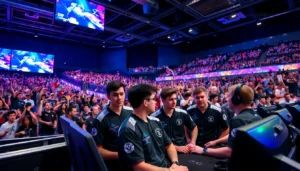Table of Contents
ToggleIn the vast world of role-playing games (RPGs), the price tag often feels like a product of magic rather than mere economics. Ever wondered why some RPGs cost the same as a fancy dinner while others are as cheap as your favorite takeout? Well, buckle up, because this is a journey through the thrilling landscape of RPG pricing. From bizarre market trends to the impact of digital platforms, understanding these costs might just give you the upper hand in your next gaming session. Let’s dive deep into the characters behind the cash and learn how to score the RPG of your dreams without emptying your wallet.
Overview of RPG Pricing Trends

The RPG landscape is constantly evolving, much like the very characters within the games. Pricing trends have shifted over the years, influenced by a myriad of factors. For instance, as the popularity of tabletop RPGs surged in the last decade, prices have surged too. It’s common to see new editions of classic games hitting the shelves at premium prices. Also, digital RPGs have created a shake-up, often offering low-cost options in contrast to high-quality physical counterparts.
One of the most notable trends is the increase in the availability of subscription services. Platforms like Roll20 and Foundry VTT have introduced monthly fees that provide access to a wide range of games and resources, making RPGs more accessible than ever. This shift has contributed to a dynamic pricing environment, where traditional methods of acquiring RPGs stand on shaky ground. Also, limited edition releases and crowdfunded projects often drive the prices up further, creating a hot collector’s market for enthusiasts.
Factors That Affect RPG Prices
When it comes to determining RPG prices, a handful of key factors come into play. First off is the production quality. Pieces with stunning artwork, rigorous playtesting, and comprehensive lore are naturally more expensive. After all, you wouldn’t expect a masterpiece painted by a renaissance artist to sell for pocket change, would you?
Next up, game mechanics play a crucial role. Complex systems usually require more development time and resources, leading to higher costs. Think of intricate rulebooks versus simple card games: the former understandably demands a heftier price.
There’s also the matter of popularity. Established titles often command higher prices, especially if they have a dedicated fanbase. Limited editions or first printings can send prices soaring, as collectors scramble to get their hands on these coveted items. Finally, distribution channels, whether it’s a direct sale from the publisher or a retail outlet, can influence the final sticker shock.
Understanding these factors empowers gamers to navigate their RPG purchases wisely.
Types of RPGs and Their Price Ranges
RPGs can be categorized into various types, each with its own price spectrum. Here’s a quick overview:
- Tabletop RPGs: Ranging from $20 for basic rulebooks to over $100 for deluxe editions, tabletop RPGs embody the spirit of cooperative storytelling. Popular titles like “Dungeons & Dragons” often fall on the pricier end due to their widespread acclaim.
- Card RPGs: These can vary widely in price, typically from $10 to $50. Collections and expansions may cost more, especially if they are collectible card games.
- Digital RPGs: Prices typically range from free-to-play options to around $60 for AAA titles. The allure of the digital realm is a lower price point and frequent sales on platforms like Steam.
- Miniatures Games: These often come with high initial costs due to the miniatures themselves, ranging from $50 to $200 or more. The hobby can escalate quickly once painting and collecting come into play.
Understanding these categories helps consumers pinpoint which games fit their budgets.
Marketplaces for Buying RPGs
Finding the right RPG can feel daunting, but the right marketplace can ease the journey. Both online and brick-and-mortar options exist to cater to different preferences. Major online retailers like Amazon and specialized shops such as DriveThruRPG offer extensive catalogs.
Local gaming stores often host events and offer used games at discounted prices, which can help gamers score fantastic deals. Discounting websites and marketplaces such as eBay are also treasure troves for collectors, but vigilance is crucial to avoid scams. Besides, social media platforms often have community groups where members buy, sell, or trade. These grassroots options connect players directly, often bypassing traditional retail markups.
Exploring these diverse marketplaces broadens options and reveals hidden gems often overlooked.
Strategies for Finding Affordable RPGs
When it comes to snagging affordable RPGs, a little creativity goes a long way. Here are some savvy strategies:
- Buy Used: Check out local game stores or online platforms for secondhand games. Many avid players sell their gently used items at a fraction of retail prices.
- Sales and Discounts: Keep an eye on seasonal sales. Websites frequently offer discounted prices during events like Black Friday or Cyber Monday.
- Crowdfunding: Platforms like Kickstarter and Indiegogo present opportunities to back new projects at lower prices. Early supporters often receive discounts as incentives.
- Bundle Deals: Several online platforms offer bundles where purchasing multiple games together yields significant savings.
- Community Resources: Joining local gaming communities or online forums can lead to discounts or even free games.
The Impact of Digital vs. Physical RPGs on Pricing
The rise of digital RPGs has undoubtedly transformed the pricing landscape. Digital formats typically cost less to produce, eliminating printing, shipping, and material costs. As a result, players can often find digital versions of popular RPGs for significantly lower prices compared to their physical counterparts. This affordability makes RPGs more accessible to a broader audience, but it also stirs some debate about value versus ownership.
Physical RPGs, while generally more expensive, offer tactile experiences that digital games can’t replicate. The thrill of flipping through a beautifully illustrated rulebook or gathering friends around a table to roll dice has its own charm, often justifying the premium cost. Also, many players appreciate the collectible aspect of physical games, viewing them as investments over time.




